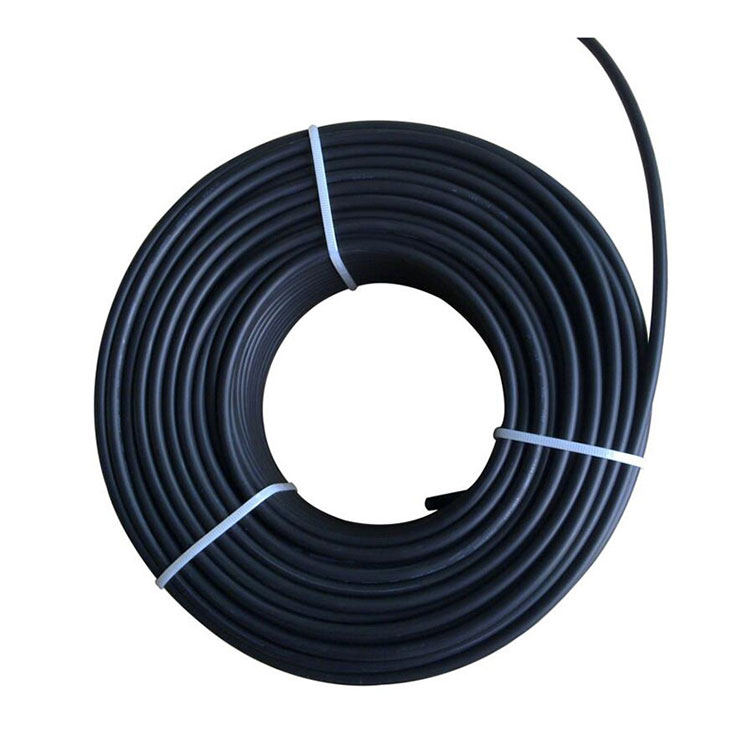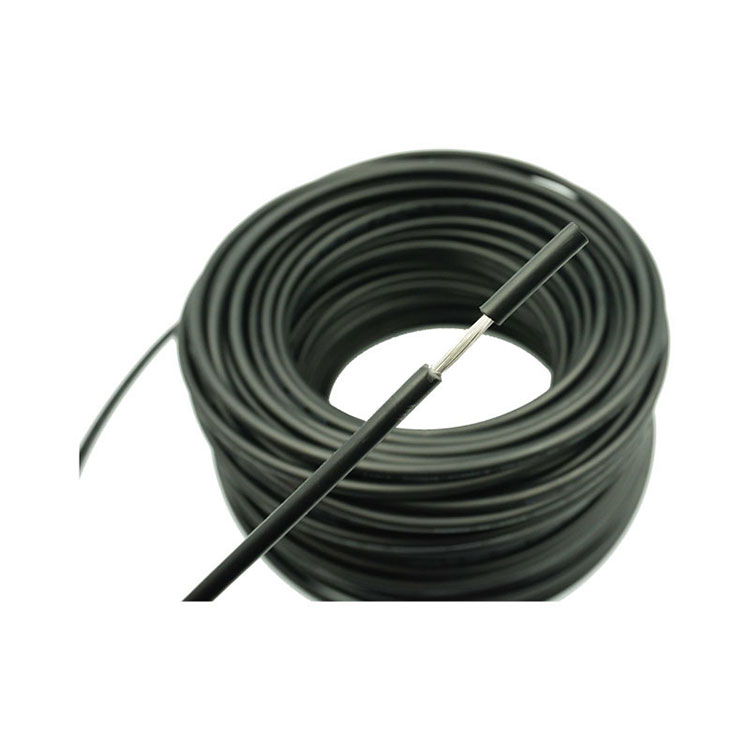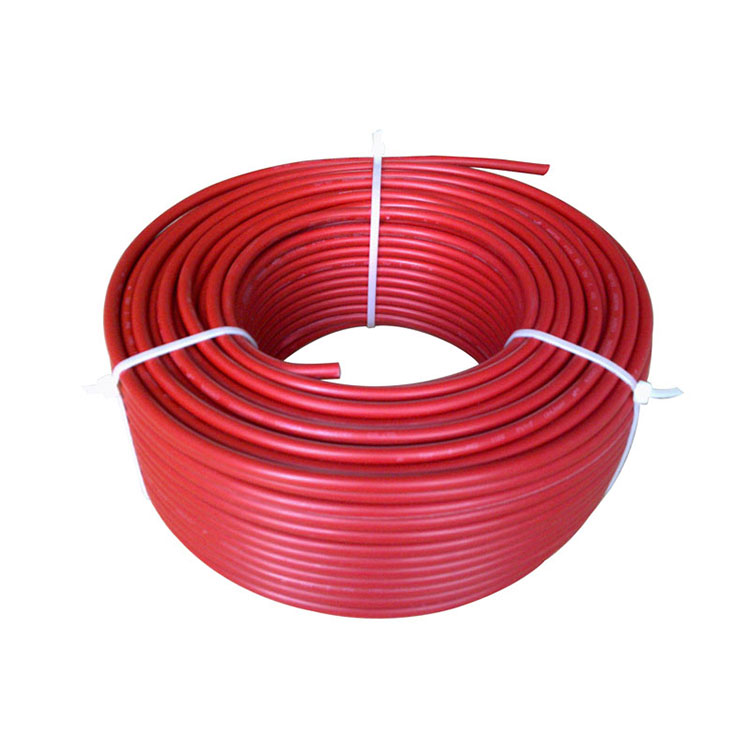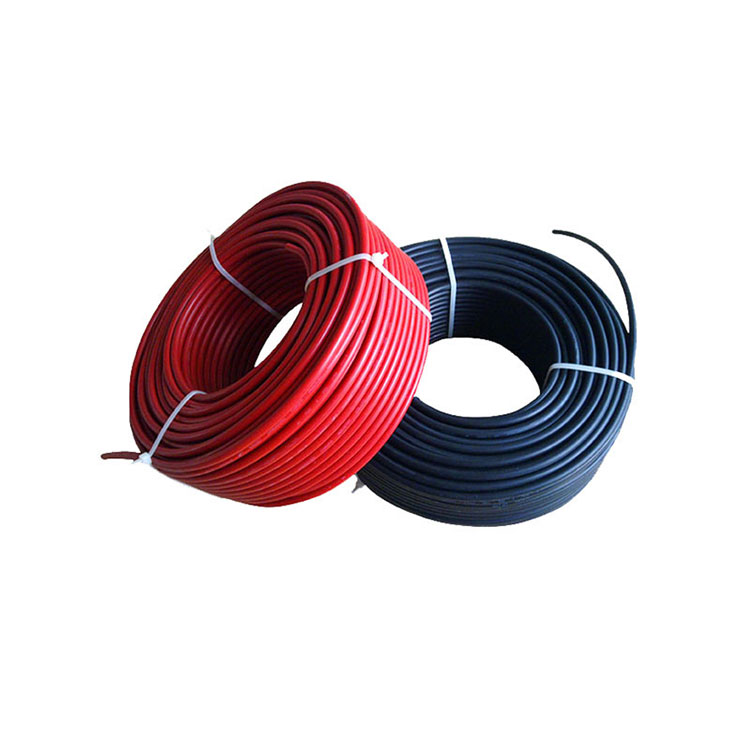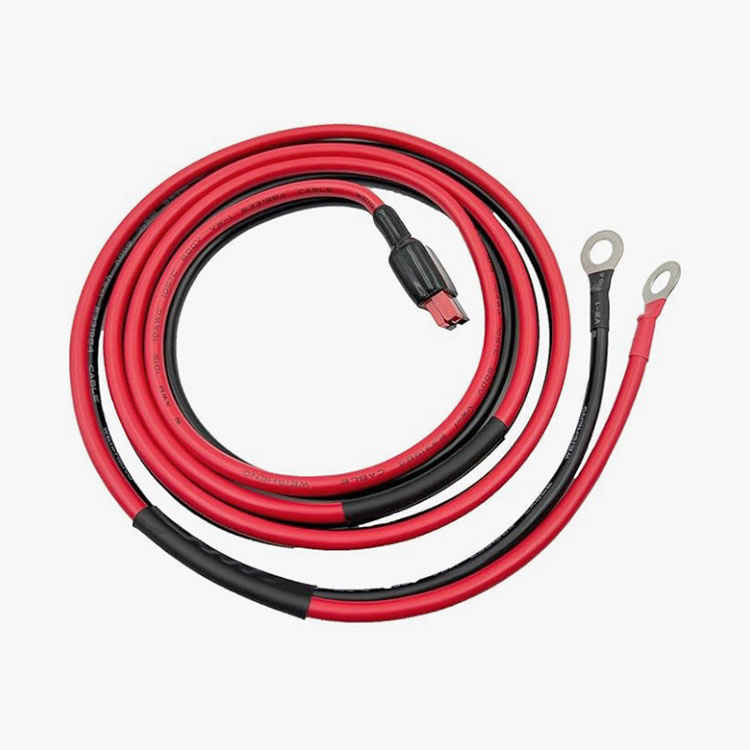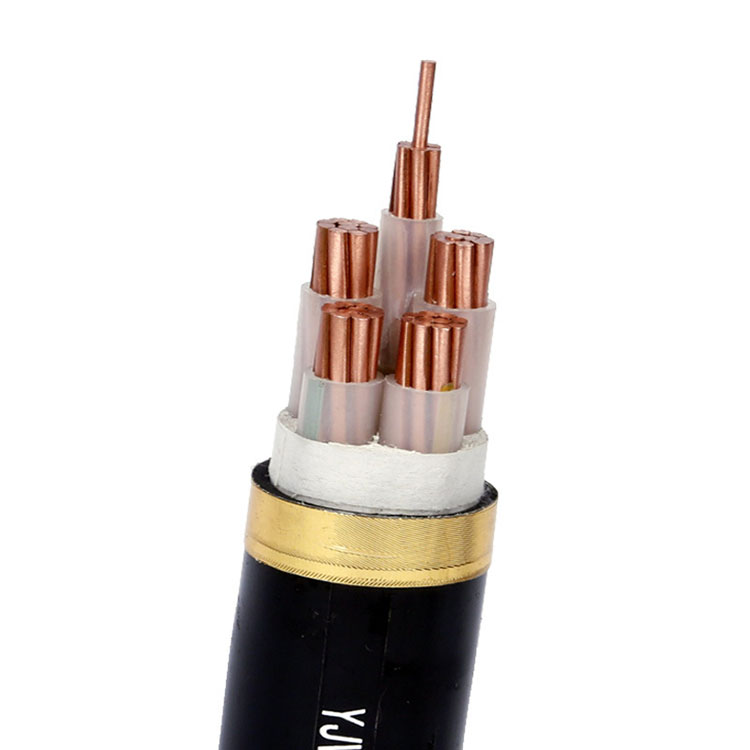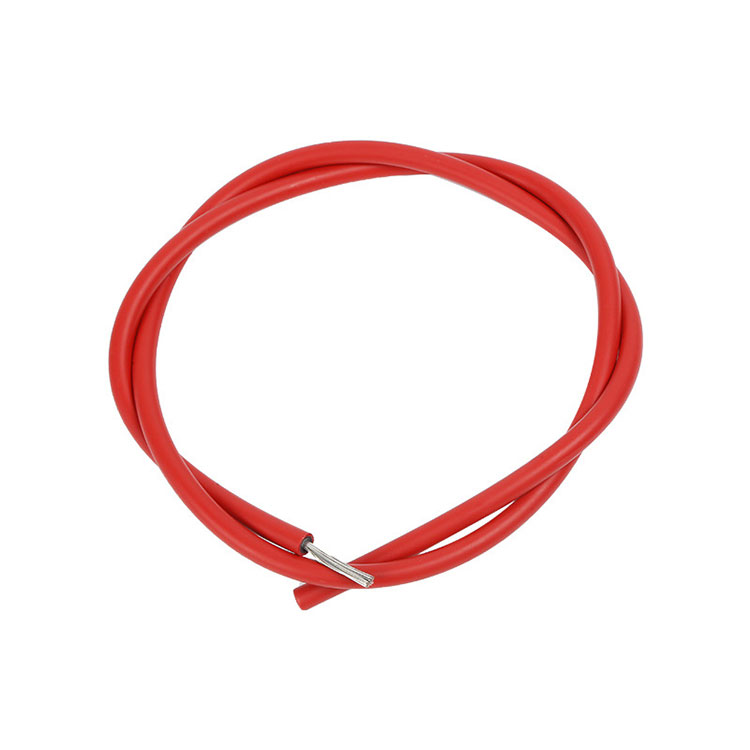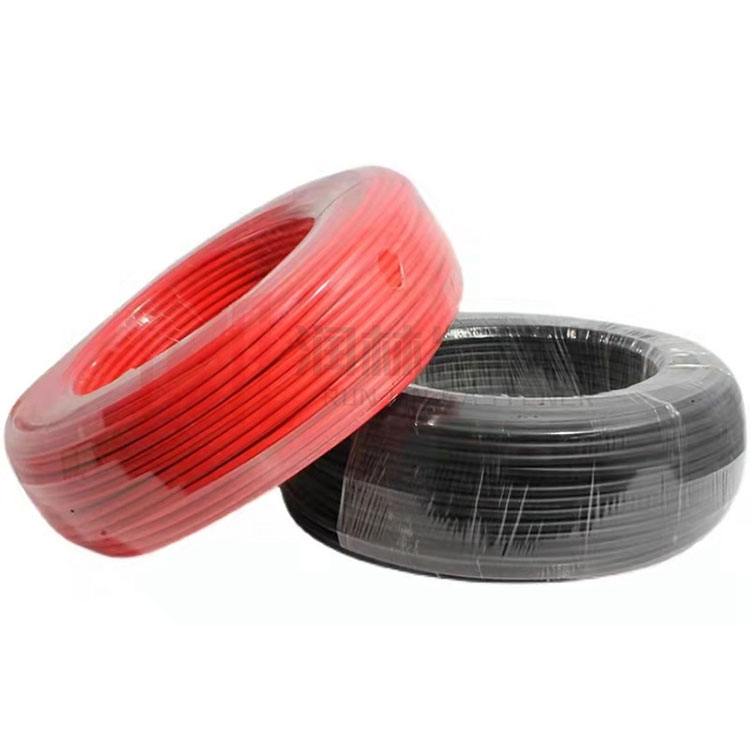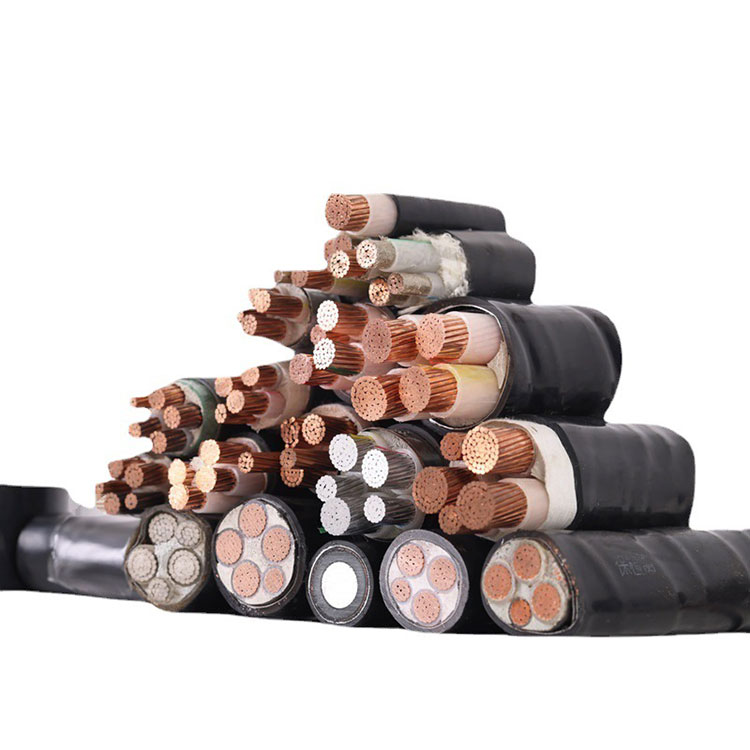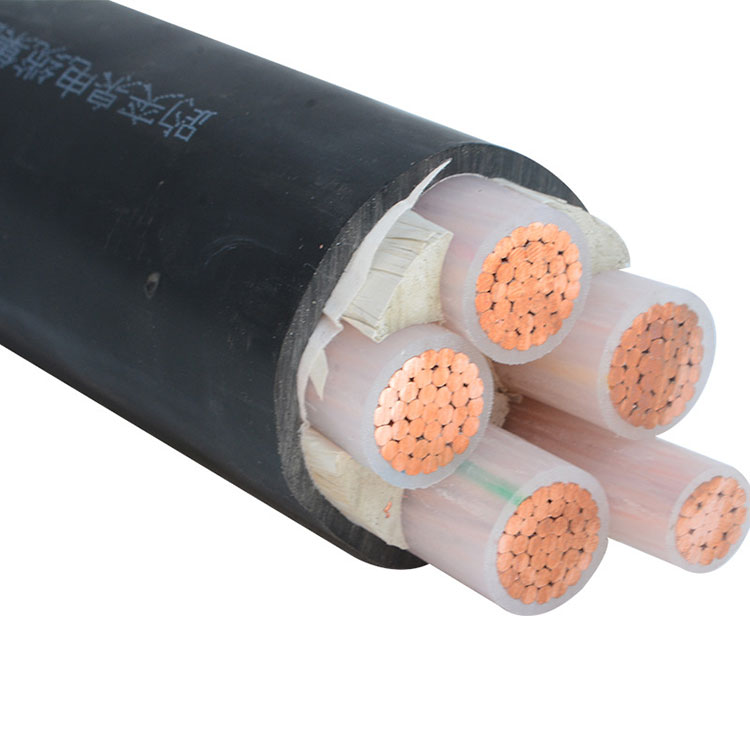PV Cable
Conductor Material: PV cables typically feature tinned copper conductors due to copper's excellent conductivity and resistance to corrosion. Tinning the copper conductors enhances their durability and performance, particularly in outdoor environments.
Insulation: The conductors of PV cables are insulated with materials such as XLPE (Cross-linked Polyethylene) or PVC (Polyvinyl Chloride). The insulation provides electrical protection, preventing short circuits and electrical leaks, and ensures the safety and reliability of the photovoltaic system.
UV Resistance: PV cables are exposed to sunlight in outdoor installations. Therefore, the insulation of PV cables is designed to be UV resistant to withstand prolonged exposure to sunlight without degradation. UV-resistant insulation helps maintain the integrity and longevity of the cable over its operational lifespan.
Temperature Rating: PV cables are designed to withstand a wide range of temperatures, including both high and low temperatures commonly encountered in solar installations. The insulation and sheathing materials used in these cables are selected to ensure optimal performance under varying temperature conditions.
Flexibility: Flexibility is a crucial characteristic of PV cables, allowing for easy installation and routing around obstacles or through conduits. Flexible cables are also less prone to damage from bending and twisting during installation.
Water and Moisture Resistance: Solar installations are subject to exposure to moisture and environmental elements. Therefore, PV cables are designed to be water-resistant and capable of withstanding outdoor conditions without compromising performance or safety.
Compliance: PV cables must comply with relevant industry standards and regulations, such as UL (Underwriters Laboratories) standards, TÜV (Technischer Überwachungsverein) standards, and NEC (National Electrical Code) requirements. Compliance ensures that the cables meet specific safety and performance criteria for use in photovoltaic systems.
Connector Compatibility: PV cables often come with connectors that are compatible with standard PV system components, facilitating easy and secure connections between solar panels, inverters, and other devices.
In summary, PV cables are critical components of photovoltaic systems, providing the necessary electrical connections to enable the efficient and reliable generation of solar power. Proper selection, installation, and maintenance of these cables are essential to ensure the safety, performance, and longevity of the overall solar energy system.
- View as
Solar Panel Charging Cable Connection Cable
Paidu is a professional leader China Solar Panel Charging Cable Connection Cable manufacturer with high quality and reasonable price. A solar panel charging cable connection cable is a specific type of cable used to connect solar panels to charge controllers, batteries, or other components in a solar power system.
Read MoreSend InquiryFlame-Retardant Copper Core Power Cable
You can rest assured to buy Paidu Flame-Retardant Copper Core Power Cable from our factory. A flame-retardant copper core power cable is a type of electrical cable designed to withstand fire incidents and minimize the spread of flames in case of a fire. Flame-retardant cables are engineered with materials that inhibit the propagation of flames and reduce the risk of fire incidents. These materials are often incorporated into the insulation, sheathing, or jacketing of the cable.
Read MoreSend InquiryElectronic Photovoltaic Cable
As a professional high quality Paidu Electronic Photovoltaic Cable manufacturer, you can rest assured to buy Electronic Photovoltaic Cable from our factory. Electronic photovoltaic cables are used to connect solar panels, inverters, charge controllers, and other components within a PV system. They facilitate the transmission of direct current (DC) electricity generated by solar panels to the rest of the system.
Read MoreSend InquiryCopper Core Flame-Retardant 5-Core Cable
Paidu is China manufacturer & supplier who mainly produces Copper Core Flame-Retardant 5-Core Cable with many years of experience.The conductor cores of the cable are made of copper, which offers excellent electrical conductivity, durability, and resistance to corrosion. Copper conductors ensure efficient power transmission and minimal energy losses within the electrical system.
Read MoreSend InquiryFlat Copper Core High Voltage Power Cable
You can rest assured to buy Paidu Flat Copper Core High Voltage Power Cable from our factory.The conductor core of the cable is made of copper, chosen for its excellent electrical conductivity and durability. Copper conductors are capable of efficiently transmitting high-voltage electrical power while minimizing energy losses.
Read MoreSend InquiryCross-Linked Power Cable Lines
As the professional manufacturer, we would like to provide you Paidu Cross-Linked Power Cable Lines. XLPE insulation is a thermosetting material used in power cables due to its excellent electrical properties, thermal stability, and resistance to moisture and environmental factors. XLPE insulation is created through a chemical process that cross-links polyethylene molecules, resulting in enhanced performance compared to traditional PVC insulation.
Read MoreSend Inquiry

